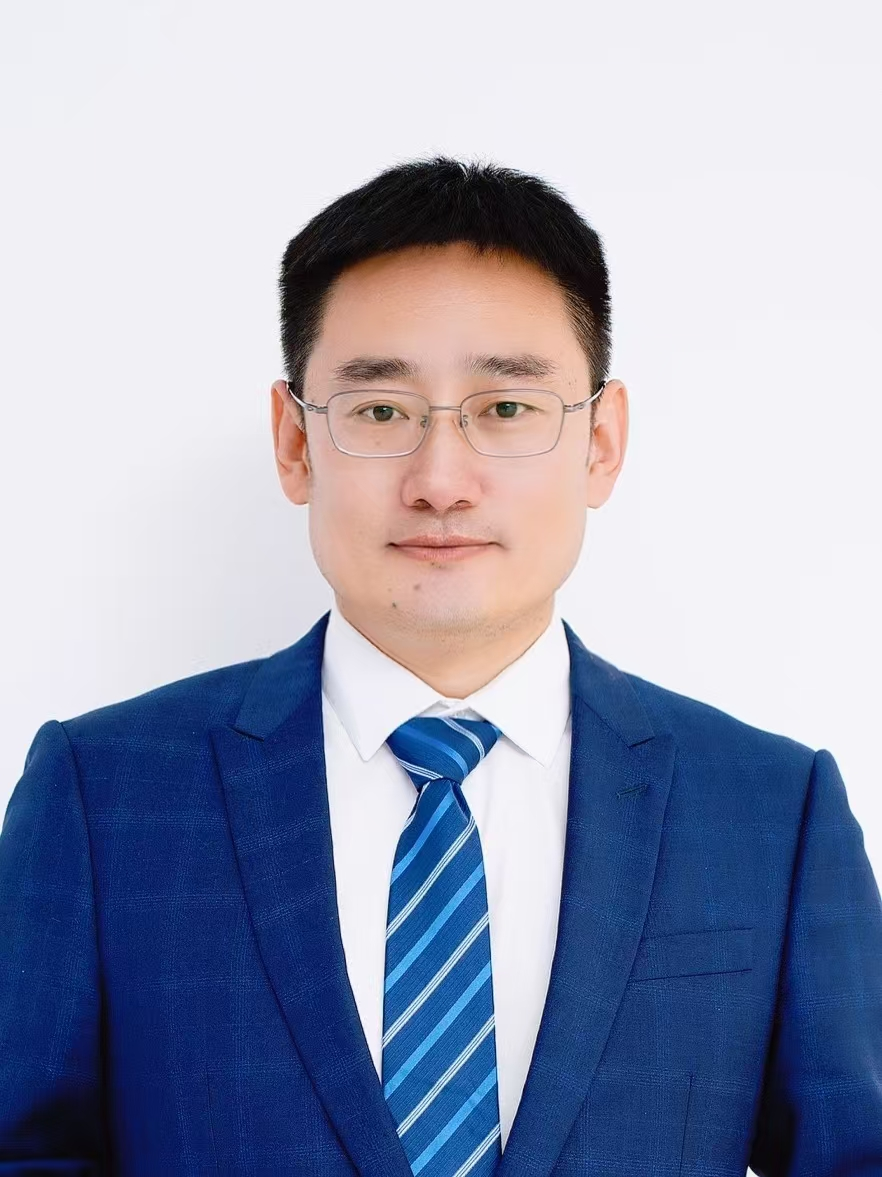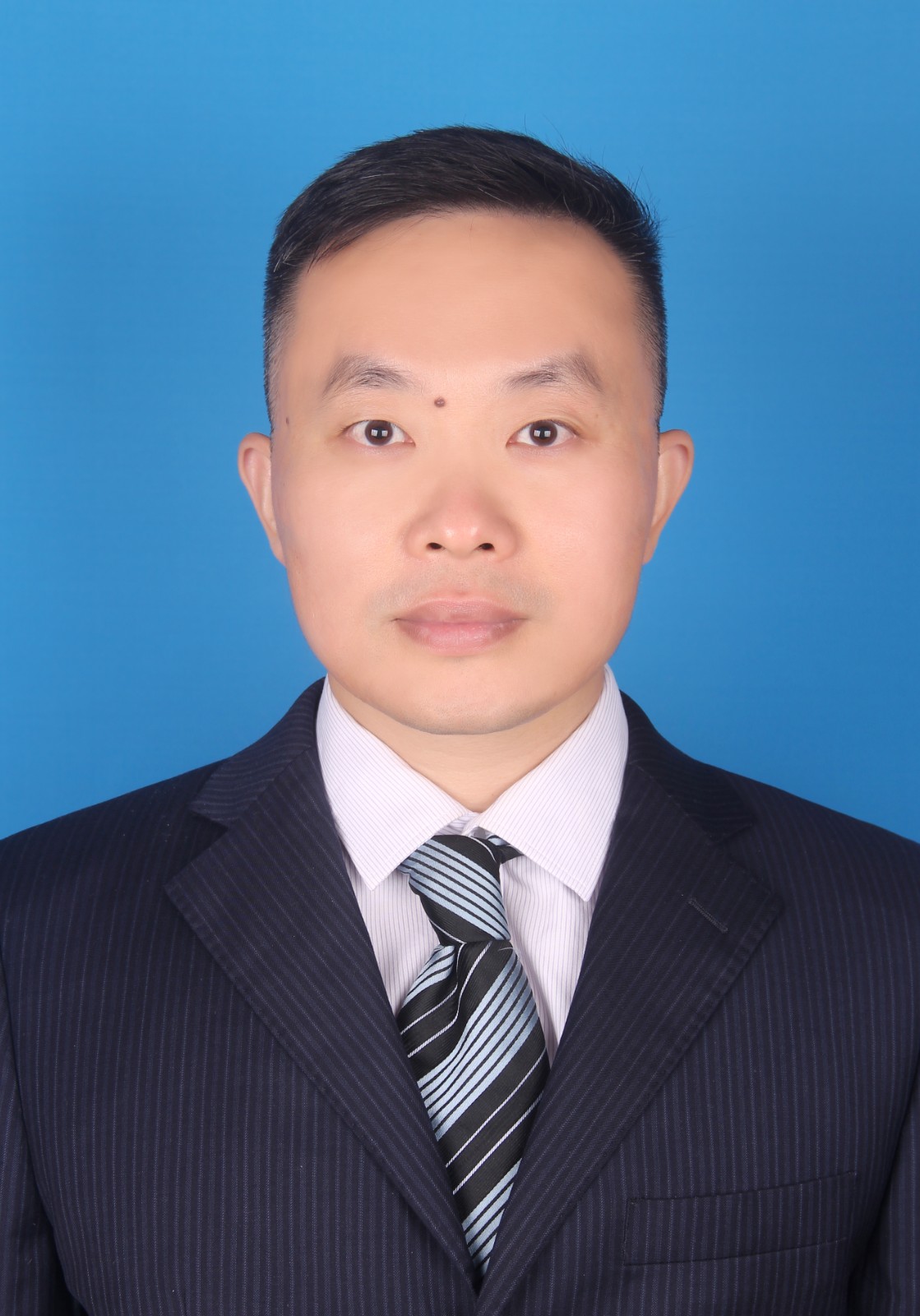Prof. Hongzhi Liu Peking University, China 刘宏志,北京大学理学博士,教授。主要研究领域:人工智能、大数据、金融科技。已在Journal of Machine Learning Research (JMLR)、IEEE Trans. Knowledge & Data Engineering (TKDE)、ACM Trans. Architecture & Code Optimization (TACO)、 IEEE Trans. Circuits and Systems for Video Technology (TCSVT)、AAAI、IJCAI、KDD、WWW等国际知名期刊和会议上发表学术论文70多篇,并编著出版《推荐系统》、《数据分析:方法与应用》等多部教材。已申请专利10多项。参与和主持多项国家自然科学基金、重点研发计划、科技支撑计划、国际合作和企业合作项目。 中国计算机学会(CCF)杰出会员、数字金融分会执行委员、数据治理发展委员会执行委员;山东省智能油气工业软件重点实验室副主任。多次应邀担任AAAI、IEEE CEC、IEEE ICCI*CC、ICIC、I-SPAN、ICSS等国际会议的Co-Chair、Session Chair和PC Member。是IEEE TKDE、ACM TKDD、DMKD、Machine Learning等国际知名期刊的审稿人,国际期刊Journal of Interconnection Networks编委。2010年至2012年在哥伦比亚大学(美国)做访问研究。曾担任腾讯、看准网等公司顾问。 |
Prof. Xiaoping Lu COSMO Plat, China Xiaoping Lu, Ph.D.in Engineering,Professor-level Senior Engineer, currently serves as Deputy Dean of the COSMOPlat Institute of Industrial Intelligence and Deputy Director of State Key Laboratory of Massive Personalized Customization System and Technology. He has been engaged in research in the fields of industrial internet and intelligent manufacturing for a long time. He also holds academic positions such as Vice Chair of the Industrial Internet Alliance's Overall Group and Expert of the IEC TC88 Working Group. He has received honors and awards including Mount Taishan Industrial Leading Talent,Special Prize of Shandong Science and Technology Progress, and Qingdao Top Talent Title: Industrial Internet + Large Models Empowering the Digital Transformation of Manufacturing Industry Abstract: This report introduces the model innovation,platform innovation,technological innovation,and digital empowerment pathways of the industrial internet platform.The COSMOPlat is an industrial Internet platform built by Haier following the national strategy,taking the initiative to follow the pace of the times,and relying on its own manufacturing experience of nearly 40 years.It is positioned as the first industrial internet platform in the world to introduce users to participate in the whole process of experience.The platform integrates Haier's unique innovations in models,technology,and ecosystems,focusing on user needs to achieve seamless multi-sided interactions between users, enterprises,and resources,fostering a co-creation and win-win industrial ecosystem.with a deep exploration of digital technology,COSMOPlat has independently developed the BaaS Digital Industrial Operating System and the BaaS Industrial Brain,establishing the ONE-COSMO‘three-horse carriage’ platform technology architecture, achieving a breakthrough in the transformation from IoT to AIoT in industrial elements and,and a breakthrough in data elements from ‘scattered’ to ‘integrated’ to ‘intelligent’,driving enterprises to transition from Massive manufacturing to Massive Personalized Customization.Based on diverse user needs,a personalized customization mode of‘platform+application’ is formed in scenarios,enterprises,industries,parks,and regions,forming a three-dimensional empowerment mode to maximize customer value. |
|
Prof. Weishan Zhang China University of Petroleum (East China), China Weishan Zhang , Head of Department of Artificial Intelligence, China University of Petroleum (East China), deputy director of the Federated Data and Federated Intelligence Special Committee of the Chinese Association of Automation, director of the Shandong Trusted Artificial Intelligence Ecological Laboratory, and director of the Qingdao Artificial Intelligence Society. In 2023 and 2024, he is listed in the World's Top 2% Scientists. The main research directions are trusted artificial intelligence, big data intelligent processing, etc. He has published more than 200 papers. At present, his H index=31, i10=92. He presided over the National Natural Science Foundation of China, the sub project of the National Key Research and Development Program, and the key natural science fundation research projects of Shandong Province. He won the first prize of Qingdao Science and Technology Progress Award, the second prize of Shandong Science and Technology Progress Award, the third prize of Wu Wenjun Artificial Intelligence Science and Technology Progress Award, etc. Title: Brain-like Cognition-Driven Model Factory for IIoT Fault Diagnosis by Combining LLMs with Small Models Abstract: Traditional solutions for Pedictive Maintainance suffers from low accuracy and adaptabilities for new use cases, hard to fully make use of multimodal maintainance data, etc. Inspired by brain cognition and Large Language Models (LLMs), we propose a brain cognition driven model factory for pedictive maintainance by combining LLMs with small scale models. A model factory is designed to generated appropriate small analysis models for correponding data, guided by a LLM fine tuned with domain specific pedictive maintainance knowledge. Evaluations using Steel Plates Faults dataset, Electric Fault-Line Detection dataset, UCI Mechanical Analysis dataset, CWRU Bearing dataset, and a self-made Air-Conditioning data show that the proposed BC-MF approach has better performance for either LLM model, or small scale model itself. Additionally, this BC-MF apporoach can be a helpful systematic solution guide for pedictive maintainance. |
Prof. Junsan Zhang China University of Petroleum (East China), China Dr. Junshan Zhang, Professor, specializes in intelligent software engineering, oil and gas industry software, image understanding, and recommendation systems. He has led over 20 research projects funded by the National Natural Science Foundation of China, the Natural Science Foundation of Shandong Province, and enterprise collaborations. In recent years, he has published more than 40 academic papers in journals such as JBHI, AIIM, Information Sciences, Neurocomputing, and various international conferences. Title: The Future of Intelligent Programming: Technologies and Applications of Automated Code Generation and Interpretation Abstract: With the rapid advancement of artificial intelligence and software engineering technologies, automated code generation and interpretation are reshaping the software development process. These technologies can automatically generate high-quality code, reducing manual coding efforts, while providing intuitive explanations of complex code logic. This enhances development efficiency and reduces maintenance costs. This report will explore the value and prospects of automated code generation and interpretation from the perspectives of technical background, core technologies, application scenarios, and future trends. |
Assoc. Prof. Yukun Dong China University of Petroleum (East China), China Dr. Yukun Dong is an associate professor at China University of Petroleum, specializing in research areas such as smart oil fields, program analysis, and intelligent software engineering. He have been responsible for and participated in more than 20 scientific research projects, and have developed defect testing systems, petroleum industry production process simulation operating systems, and other systems as a backbone. He have published more than 40 high-level academic papers and won 5 scientific research awards such as the Ministry of Education's Science and Technology Progress Award. Title: Industrial operating system for petroleum production process Abstract: As the key support for enterprise digital transformation, industrial operating system supports various industrial Internet applications upward and manages various industrial infrastructure downward. It is an important support for the development and operation of industrial software, which can be divided into core layer and framework layer in structure. The operating system of the petroleum industry can optimize the cloud-edge network of the current oil field, comprehensively perceive various production equipment of the oil field, condense and precipitate the commonalities of oil field applications, and achieve real-time intelligent decision-making, which plays an important role in modern petroleum industry. This report introduces the architecture of operating systems in the petroleum industry, which can be divided into four frameworks: real-time cognition, comprehensive perception, ubiquitous interconnection, and precise control. And introduce practical cases such as smart oil pipeline network and pressure controlled drilling. |
Assoc. Prof. Xinghao Yang China University of Petroleum (East China), China Xinghao Yang is an Associate Professor at the College of Control Science and Engineering, China University of Petroleum (East China), China. He received the BEng degree in electronic information engineering and MEng degree in information and communication engineering from China University of Petroleum (East China) in 2015 and 2018, respectively. He received the Ph.D. degree in computer science from the University of Technology Sydney in 2022. His current research interests include multi-view learning and adversarial machine learning with 30+ publications on top journals (IEEE TKDE, IEEE TCSVT, Information Fusion, Information Sciences, Pattern Recognition) and prestigious conferences (AAAI, IJCAI, EMNLP). Title: Research on text adversarial attack method based on multivariate combinatorial optimization Abstract: Transformer-based deep learning frameworks have achieved milestone success in the Natural Language Processing (NLP) community, such as BERT, T5, and ChatGPT. However, existing studies have proven that these deep models are super vulnerable to text adversarial examples, which are slightly perturbed inputs. Therefore, it is significant to explore high-quality text adversarial attack methods to understand the behavior of modern NLP models. This research focuses on the word-level text adversarial attack and treats this problem as multivariate combinatorial optimization. Several optimization methods will be discussed, such as the monotonic heuristic algorithm, simulated annealing algorithm, parallel particle swarm optimization algorithm, and genetic annealing algorithm, to achieve a low-cost attack. Finally, the safety and robustness of the deep learning model can be improved by adversarial training. |






